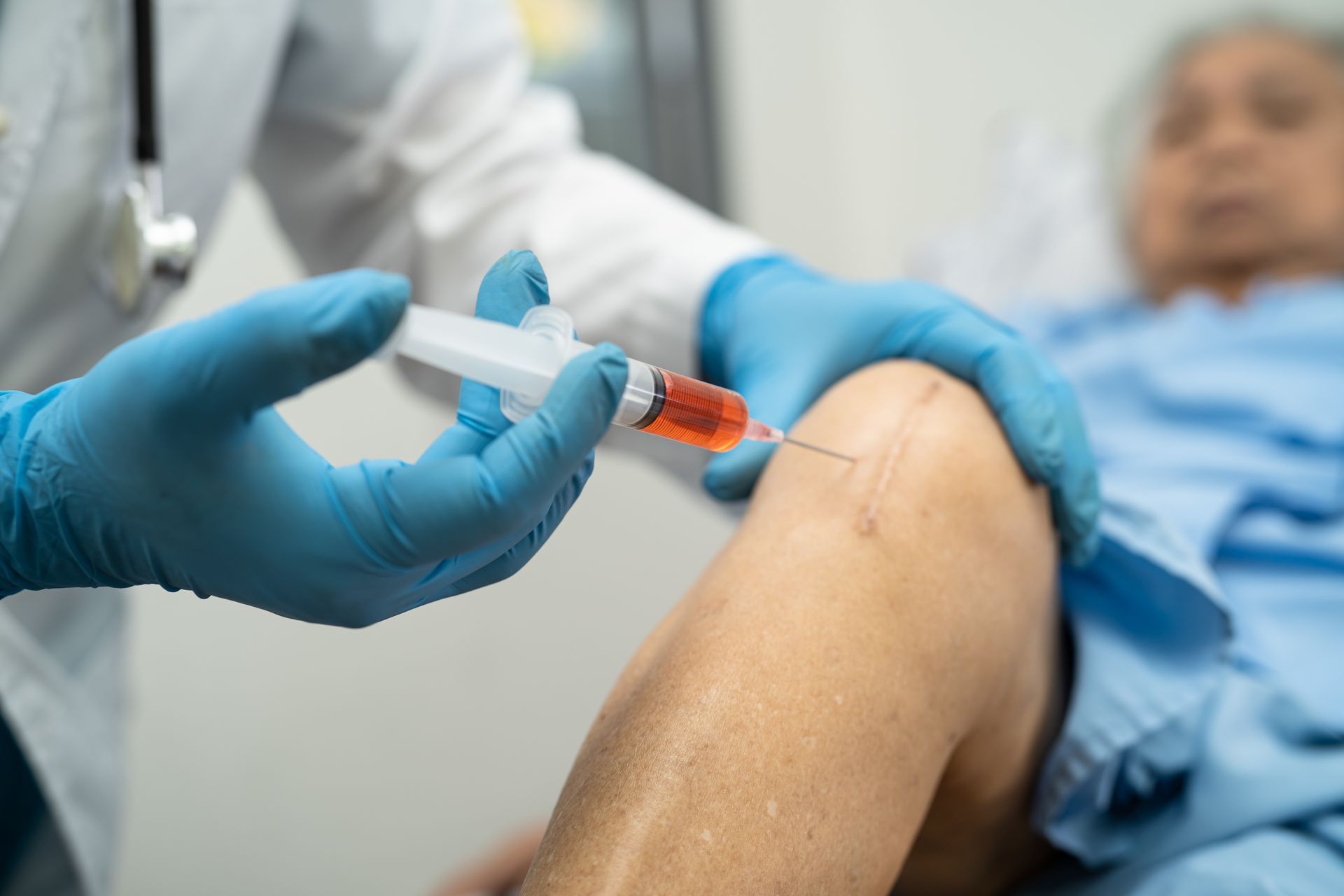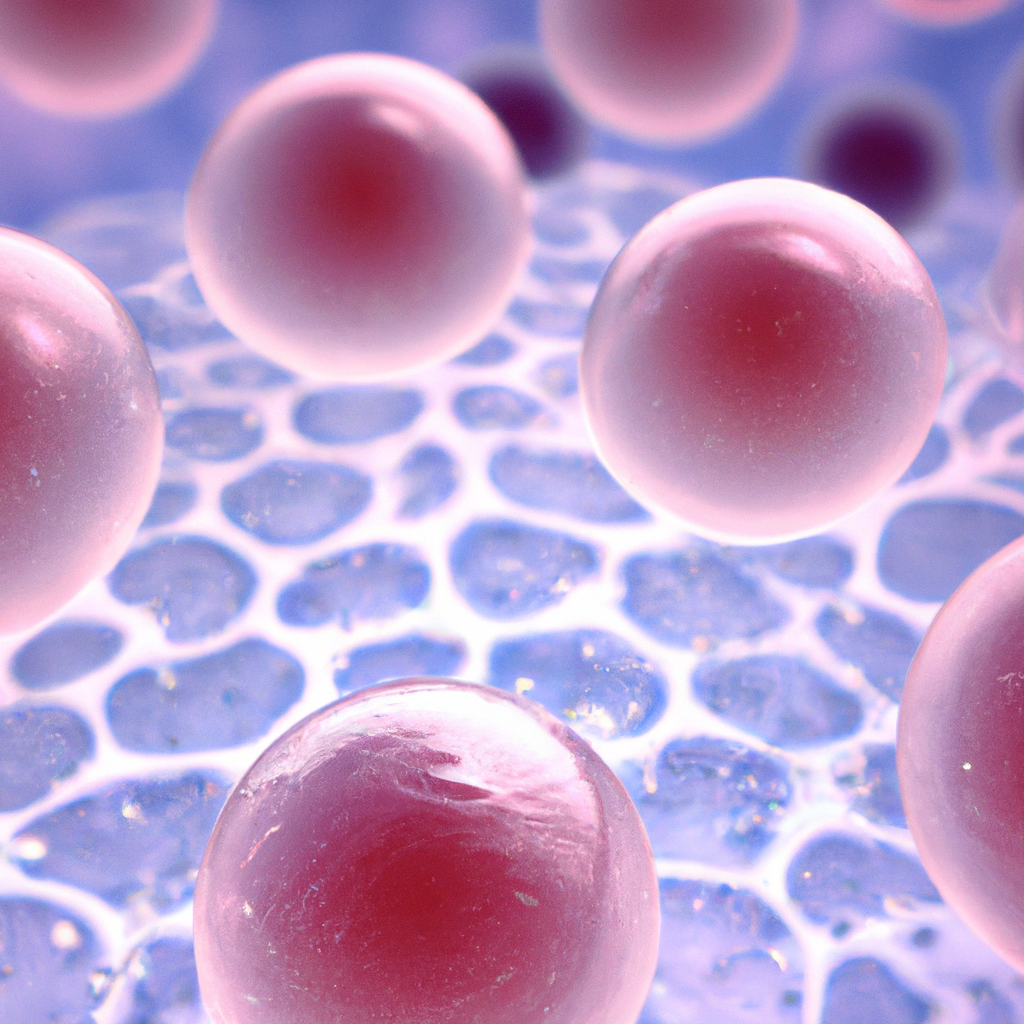5 Reasons Why You Should Choose Stem Cell Treatment Over Surgery

Pain is one of the most debilitating consequences of aging. Every year, millions of people in the United States seek treatment for knee, hip, shoulder, or back pain. Correspondingly, the number of surgical procedures being performed has been on the rise, and total knee and hip replacements rank among the most commonly performed orthopedic procedures. However, is surgery really the ideal solution? Before you take that leap, you need to know about the problems associated with surgery—and why stem cells might be a better option for you.
Reason 1: Surgery does not always get rid of the pain
Total knee replacement is often touted solution to alleviating arthritic knee pain. However, a recent review indicates that anywhere between 20% to 40% of patients live with chronic knee pain even after surgery! The authors even suggest that this number is probably underestimated, as many patients are reluctant to admit that the treatment may not have worked.1 The figures are even higher after hip replacement—a prospective study revealed that as many as 58% of patients suffer from persistent pain after hip surgery.2 On the other hand, there is clear evidence that stem cell injections alleviate pain in the long term.
Reason 2: Stem cell treatment is less invasive
Like it or not, surgery is pretty barbaric by nature—the diseased joint is literally cut out and replaced with a metallic substitute. While your brain knows what’s going on, your body gets confused—why was a part of me cut off? It asks. What is this foreign ‘thing’ doing in its place? So, your body and its immune system respond with rebellion. You develop swelling immediately in response to surgery, which can be severe enough to limit walking and movement at the joint. Recovery from surgery is a slow, difficult process, and you need regimented physiotherapy sessions to fully regain your mobility.
In contrast, stem cell injections help ‘regenerate’ not ‘replace’. Stem cells aid the body to heal itself and your body much prefers this option. It cooperates with the regenerative process and there is minimal swelling. Studies have shown great improvements in disability scores and range of motion parameters within a short while after stem cell injections.
Reason 3: Stem cell therapy is associated with fewer complications
Surgery is associated with a large number of complications. Cuts and incisions into the body put it at risk of acquiring a whole host of infections. The joint itself can get infected. This happens in 2% of knee replacements and up to 10% of hip replacements. There is also the risk of developing respiratory infections, such as pneumonia, or urinary tract infections.
As surgery involves actively removing various structures, there is always a risk of inadvertently damaging a vital blood vessel or nerve. Nerve injuries can occur in about 2% of cases, which can cause numbness at best and weakened movement at worst.
The most serious complication after orthopedic surgery is deep vein thrombosis (DVT). In DVT, blood clots within the veins of your legs. The clot can break off and travel anywhere in the body. If it reaches the lungs, it can get lodged in a major blood vessel there, blocking blood flow to the lungs completely. The condition, called pulmonary embolism (PE), causes severe chest pain, breathlessness, and even death. The incidence of DVT and PE following orthopedic surgery is as high as 40% when preventive measures are not taken.
On the contrary, stem cell injections do not pose any DVT risk nor are they associated with nerve injuries. Infections following stem cell infections are extremely rare.
Pain medications are required after surgery and they would have their own set of side-effects and complications. You end up consuming a lot more pain medications after surgery than you do with stem cell treatment. At the most, stem cell treatment would require a couple of weeks of pain medication. Most patients would need much less. However, research shows that patients who undergo surgery may be on pain medication even a year after surgery. Even over-the-counter and non-narcotic medications can have side-effects over the long term—gastric ulcers, acidity, and risk of prolonged bleeding. Narcotic meds make you sleepy and impair concentration—not to mention that you run the risk of becoming dependent on them.
Reason 4: With stem cell therapy, you get to keep your options open!
No form of treatment—whether it is stem cell therapy or surgery, has a 100% cure rate. There will be some cases where the treatment doesn’t work. But if you’ve had surgery, you may have literally closed the door to all other treatment options. The success rate of re-surgery is extremely low, and it is not possible to inject stem cells into a body part that has already undergone surgery. In comparison to this, in the event that a stem cell injection should fail to give you proper relief, you always have the option of having another stem cell injection. You could even choose to have surgery after stem cell injections are not able to repair the damage in your joints. So ideally, stem cell therapy is what you should try first—before you move on to other treatment options.
Reason 5: In the long run, stem cell treatment is more cost-effective
Both stem cell injections and surgery are relatively expensive procedures. You may prefer to opt for surgery because health insurance may cover the costs. But before you jump the gun, remember that insurance always has deductibles. Your out-of-pocket expenses may be higher than you imagine. Moreover, surgery requires anesthesia and pre-anesthetic investigations that can cost you time and money. The long recovery time after surgery may also result in missed wages. Hence, in the long run, you may find that put together, stem cell injections may actually work out to be far less expensive!
Factoring in the above-mentioned points, it’s easy to see why choosing stem cells is a better clinical decision than surgery. At Spectrum Stem Cell and Regenerative Medicine Center (Spectrum), we provide cutting-edge stem cell treatment solutions that maximize your chances of benefiting from this innovative form of therapy. Please don’t hesitate to contact us for more details.
References:
Wylde V, Beswick A, Bruce J, Blom A, Howells N, Gooberman-Hill R. Chronic pain after total knee arthroplasty. EFORT Open Rev. 2018 Aug 16;3(8):461-470. doi: 10.1302/2058-5241.3.180004. PMID: 30237904; PMCID: PMC6134884.
Erlenwein J, Müller M, Falla D, et al. Clinical relevance of persistent postoperative pain after total hip replacement - a prospective observational cohort study. J Pain Res. 2017;10:2183–2193. Published 2017 Sep 7. doi:10.2147/JPR.S137892
Orozco L, Munar A, Soler R, Alberca M, Soler F, Huguet M, Sentís J, Sánchez A, García-Sancho J. Treatment of knee osteoarthritis with autologous mesenchymal stem cells: two-year follow-up results. Transplantation. 2014 Jun 15;97(11):e66-8.
Mardones R, Jofré CM, Tobar L, Minguell JJ. Mesenchymal stem cell therapy in the treatment of hip osteoarthritis. J Hip Preserv Surg. 2017 Mar 19;4(2):159-163. doi: 10.1093/jhps/hnx011. PMID: 28630737; PMCID: PMC5467400.
Fuzier R, Serres I, Bourrel R, Palmaro A, Montastruc JL, Lapeyre-Mestre M. Analgesic drug consumption increases after knee arthroplasty: a pharmacoepidemiological study investigating postoperative pain. Pain. 2014 Jul;155(7):1339-1345. doi: 10.1016/j.pain.2014.04.010. Epub 2014 Apr 13. PMID: 24727347.








